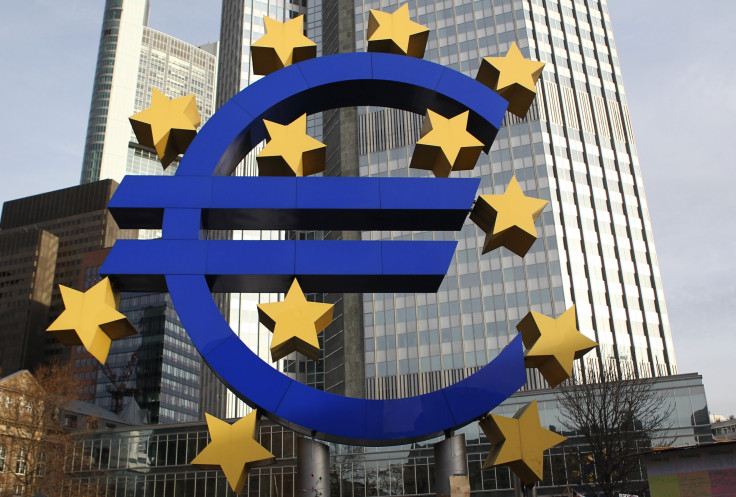Euro Zone Service Activity Surges To 27-Month High In September; Euro Zone Manufacturing Expands, But France Disappoints

Activity in the euro zone's service sector rose the most since June 2011, suggesting that the region is steadily recovering from a long recession, a flash estimate released Monday by Markit showed. Manufacturing activity in the euro zone expanded in September, but the rate of expansion was slightly lower than in August, according to the estimate.
Services purchasing managers’ index, or PMI, was at a 27-month high of 52.1 in September, compared to 50.7 in August, while the composite output index too rose to a 27-month high of 52.1 in September, compared to 51.5 in August, Markit data showed. The PMI in the euro zone's manufacturing sector was 51.1 in September, down from 51.4 in August, while flash euro zone manufacturing PMI output index was 52.1 in September, down from 53.4 in August.
“It is particularly encouraging to see the business situation improved across the region. Although the upturn continued to be led by Germany, France saw the first increase in business since early-2012 and elsewhere growth was the strongest since early-2011,” Chris Williamson, chief economist at Markit, said in a statement.
Growth in new orders, which rose at the fastest rate since June 2011, drove business activity, although only the service sector reflected the acceleration in September. An improvement in demand eased the pace of job-shedding in the euro zone, according to Markit, as the decline in employment was the slightest in the current sequence of decline that started in January 2012.
Germany’s manufacturing sector grew in September but the pace of growth dropped marginally compared to August, while the service sector markedly improved leading to a stronger expansion of German private sector output.
Germany’s manufacturing PMI dropped to 51.3 in September down from 51.8, Markit's preliminary estimate showed, while the manufacturing output index was 52.7 in September, compared to 54.8 in August. The flash German composite output index rose to 53.8 in September, compared to 53.5 in August, indicating a solid rise in business activity, with the pace of expansion being the fastest since January. The flash services activity index rose to a 7-month high of 54.4 in September, compared to 52.8 in August.
“Germany’s economy remained firmly in recovery mode during September, and its strengthening performance should continue to reverberate across the euro area,” Tim Moore, a senior economist at Markit, said in a statement. “Survey respondents suggested that expectations are particularly buoyant for demand within the domestic-focused service sector over the months ahead.”
French manufacturing activity sharply dropped in September, while the country's private sector showed signs of broad stabilization in output, ending an 18-month period of contraction. France’s flash manufacturing output index fell to a 4-month low of 47.8 in September, compared to 48.5 in August, while manufacturing PMI dropped to a 3-month low of 49.5, compared to 49.7 in August.
The flash composite output index rose to a 19-month high of 50.2 in September, up significantly from 48.8 in August, while flash services activity index climbed to a 20-month high of 50.7, compared to 48.9 in August. Employment continued to drop in September, but the rate of decline eased to its slowest in the current sequence of 19 straight months of decline.
“The latest Flash PMI data point to stabilizing business conditions in France during September,” Jack Kennedy, a senior economist at Markit, said in a statement. “A return to expansion for the service sector counterbalanced a weaker manufacturing performance, but new business trends were broadly flat across both sectors. Employment also moved closer to stabilization, which should help the economy remain on a firmer footing.”
Williamson said the overall rate of growth in the euro zone remains “modest,” but, consistent with a slow rise of gross domestic product, or GDP, at the rate of 0.2 percent in the third quarter.
“While rising inflows of new business bode well for a further upturn in the fourth quarter, policymakers at the ECB will no doubt view it as too early to change their stance on keeping policy on hold for an extended period,” Williamson said.
© Copyright IBTimes 2024. All rights reserved.












